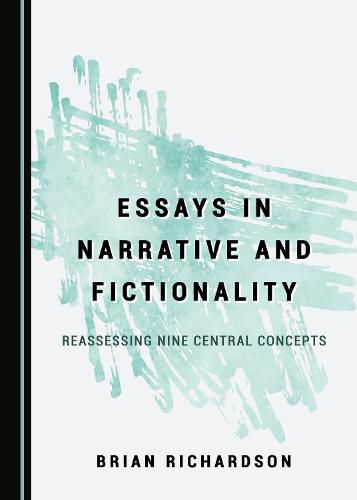Readings Newsletter
Become a Readings Member to make your shopping experience even easier.
Sign in or sign up for free!
You’re not far away from qualifying for FREE standard shipping within Australia
You’ve qualified for FREE standard shipping within Australia
The cart is loading…






This book brings together several major essays on foundational topics of narrative studies and the theory of fictionality by one of the preeminent figures of postclassical narrative theory. It reexamines and reconceives the role of the author, the status of implied authors, the model for unnatural narrative theory, the nature of narrative, and the ideological implications of narrative forms. It also explores the status of historical characters in fictional texts, the paradoxes of realism, the presence of multiple implied readers, the role of actual readers, and the question of fictionality. In addition, an appendix offers a useful approach for teaching narrative theory. The book includes analyses of works by Conrad, Joyce, Woolf, Nabokov, Beckett, Jeanette Winterson, Deborah Eisenberg, and others. Throughout, it argues for a more expansive conception of narrative theory and keen attention to the nature and difference of fiction. This provocative book makes crucial interventions in ongoing critical debates about narrative theory, literary theory, and the theory of fictionality, and is essential reading for all students of narrative.
$9.00 standard shipping within Australia
FREE standard shipping within Australia for orders over $100.00
Express & International shipping calculated at checkout
This book brings together several major essays on foundational topics of narrative studies and the theory of fictionality by one of the preeminent figures of postclassical narrative theory. It reexamines and reconceives the role of the author, the status of implied authors, the model for unnatural narrative theory, the nature of narrative, and the ideological implications of narrative forms. It also explores the status of historical characters in fictional texts, the paradoxes of realism, the presence of multiple implied readers, the role of actual readers, and the question of fictionality. In addition, an appendix offers a useful approach for teaching narrative theory. The book includes analyses of works by Conrad, Joyce, Woolf, Nabokov, Beckett, Jeanette Winterson, Deborah Eisenberg, and others. Throughout, it argues for a more expansive conception of narrative theory and keen attention to the nature and difference of fiction. This provocative book makes crucial interventions in ongoing critical debates about narrative theory, literary theory, and the theory of fictionality, and is essential reading for all students of narrative.